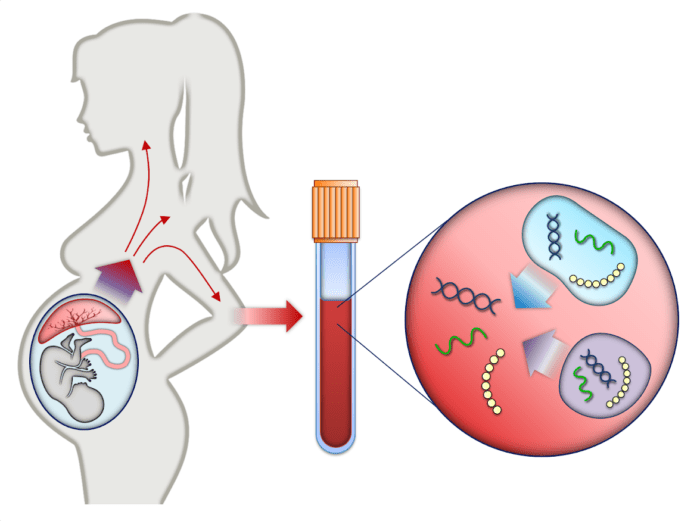Prenatal Testing in Pune: This blog explores the importance of prenatal diagnosis and screening for hemoglobinopathies, aiming to empower expecting parents to make informed decisions.
While being pregnant is a wonderful and exciting experience, it also necessitates careful planning and attention, especially in regard to the mother’s and the child’s health and well-being. Pregnancy poses a number of health risks, including hemoglobinopathies such as thalassemia and sickle cell disease. In this article, we’ll go into the importance of screening for and prenatally diagnosing hemoglobinopathies.
Understanding Hemoglobinopathies
Hemoglobinopathies are a group of genetic disorders characterized by abnormalities in the structure or production of haemoglobin, the protein responsible for carrying oxygen in the blood.
The two types of hemoglobinopathies that are most common are:
- Sickle Cell Disease: A mutation in the beta-globin gene results in the production of sickle haemoglobin (HbS). Red blood cells carrying haemoglobin S become sickle-shaped when oxygen levels are low, causing organ damage, blood channel obstructions, and acute discomfort.
- Thalassemia: Mutations in either the beta or alpha-globin genes reduce the formation of these chains, which results in anaemia (low red blood cell count). Depending on the degree of the mutation, thalassemia can range from moderate to life-threatening, needing regular blood transfusions and other medications.
Prenatal Testing in Pune

Who Should be Screened?
Hemoglobinopathies should generally be checked for in all the expectant mothers, especially those who have a personal or family history of the disorders. Screening is very important when the couple is married consanguineously (marriage within blood relation) Furthermore, people who have ancestors from areas such as sections of Africa, the Mediterranean, Southeast Asia, and the Middle East where hemoglobinopathies are quite prevalent are at an increased risk and ought to undergo screening.
Prenatal Testing in Pune: The Importance of Prenatal Screening and Diagnosis
Hemoglobinopathy diagnosis and prenatal screening let at-risk couples know how likely it is that their offspring will inherit the disorder. This gives them the power to decide on their pregnancy with knowledge. This is the reason it matters:
- Making Informed Decisions: After learning about the possible health concerns of their unborn child, parents can decide whether to carry on with the pregnancy.
- Preparation for Delivery and Care: Early diagnosis allows for planning for delivery and management of the newborn’s condition.
- Early Detection: Early management and intervention following birth are made possible by determining the fetus’s carrier status or the existence of a major type of hemoglobinopathy.

- Consideration of Preimplantation Genetic Diagnosis (PGD): For couples with a high risk of transmitting severe hemoglobinopathy, PGD can be an option. This technique involves testing embryos created through in vitro fertilization (IVF) for genetic conditions before implantation.
Screening for Hemoglobinopathies in Mothers:
There are several screening methods available for hemoglobinopathies, such as:
- Complete Blood Count: The Complete Blood Count (CBC) is a routine blood test that counts, shapes, and sizes red blood cells. Abnormalities in these parameters may point to hemoglobinopathy.
- Haemoglobin electrophoresis: This test examines the various forms of haemoglobin found in blood, making it possible to identify aberrant variations such as HbS or kinds linked to thalassemia.

- DNA Analysis: This test determines the carrier status or existence of hemoglobinopathy in the foetus by directly analysing the genes that produce the globin chain.
If the patient is found to be a carrier or affected with any of these hemoglobinopathies, then subsequently the husband’s testing also becomes very important in order to know the exact risk of transmitting the disease in the fetus. Hence, similar tests can be suggested for the husband as well.
Prenatal Diagnosis of hemoglobinopathies: If both husband and wife are found to be carriers / affected by any of the hemoglobinopathy, then prenatal diagnosis is important in the fetus to avoid the major issues associated with hemoglobinopathies in the baby after delivery.
The methods for diagnosis involves obtaining fetal genetic material, can be performed through:
- Chorionic Villus Sampling (CVS): A small sample of placental tissue is collected around 11-14 weeks of pregnancy.
- Amniocentesis: A sample of amniotic fluid, containing fetal cells, is collected around 15 to 20 weeks of pregnancy.
These tests are the only diagnostic and 100 % confirmatory tests which will tell you whether your baby is actually affected with any of the hemoglobinopathies.
Conclusion:
Prenatal diagnosis and screening for hemoglobinopathies are integral components of comprehensive prenatal care, offering opportunities for early detection, intervention, and informed decision-making. By leveraging advancements in genetic testing technologies and prioritizing genetic counselling and support services, fetal medicine experts can empower expectant parents to navigate the complexities of genetic risk assessment and optimize outcomes for both mother and child.
Prenatal Testing in Pune – Screening for Hemoglobinopathies
Reach out to Dr Tejas Tamhane, a well-known Fetal Medicine Expert, who can help guide you through prenatal testing in Pune, including screening for hemoglobinopathies in pregnancy.

